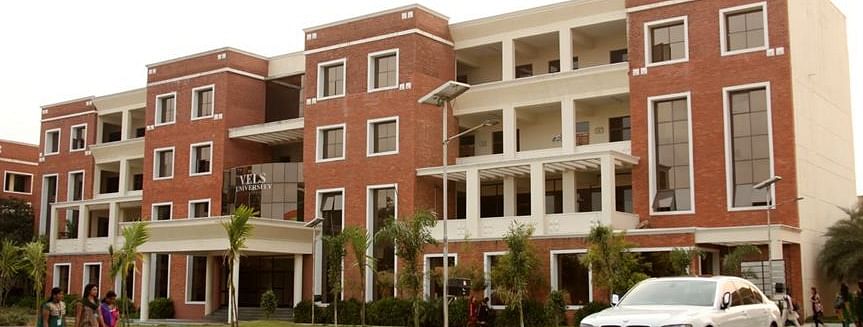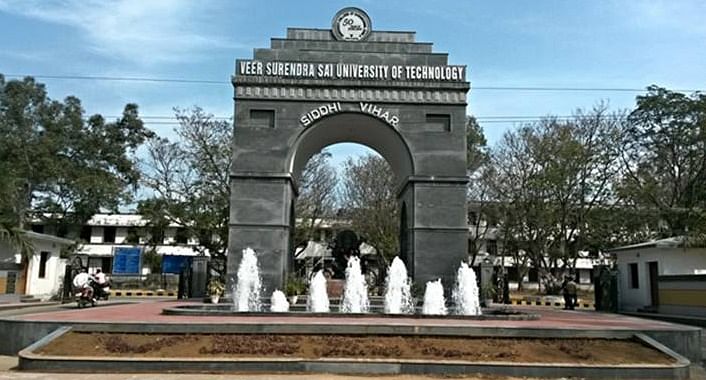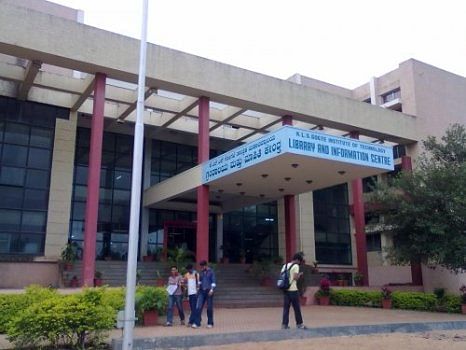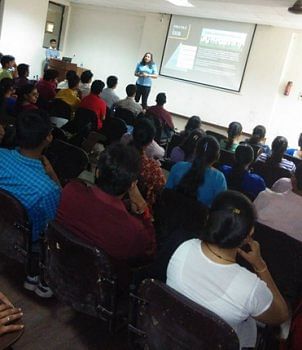B.Tech Architecture Engineering Syllabus and Subjects

B.Tech Architecture Engineering syllabus is designed so that students are exposed to both basic engineering fundamentals combined with civil engineering and architecture subjects. Graduates of the B.Tech Architecture Engineering are well-versed in theoretical and practical knowledge of the design and construction of housing and commercial complexes.
B.Tech Architecture Engineering syllabus introduces students to fundamental sciences concepts combined with domain-related subjects. Students will receive exposure in fundamental civil engineering subjects combined with design. The course also includes basic sciences and communication subjects that enhance students' softs skills.
Semester Wise B.Tech Architecture Engineering Syllabus
The curriculum is divided into four parts that impart basic sciences and foundational engineering subjects in the initial semesters, specialization subjects combined with lab sessions, and design studio sessions in the following semesters.
The stream-oriented subjects of B.Tech Architecture Engineering include applied geotechnical engineering, engineering mechanics, structural analysis, building materials, etc. These subjects are aimed to impart knowledge on the nuances of architectural design and construction.
The course structure for B.Tech Architecture Engineering isn't fixed and varies from one university to another. The course structures followed by most of the universities across the country are recommended by AICTE. The list below consists of a semester-wise split-up of the syllabus:
| SEMESTER I | SEMESTER II |
| Engineering Mathematics-I | Basic Electronics Engineering |
| Professional Communication Skills | Engineering Thermodynamics |
| Fundamental Architecture Studio - I | Chemistry Laboratory |
| Engineering Physics | Engineering Chemistry |
| Engineering Mechanics | Fundamental Architecture Studio - II |
| Engineering Mechanics Lab | Building Construction - I |
| Engineering Physics Laboratory | Engineering Maths - II |
| Computer Programming (Theory + Laboratory) | Basic Electronics Engineering (Theory+Lab) |
| SEMESTER III | SEMESTER IV |
| Surveying - I (Theory + Practical) | Structural Analysis |
| Mechanics of Solids | Surveying - II |
| Fluid Systems | GeoTechnical Systems |
| Engineering Mathematics - III | Engineering Mathematics - IV |
| Climatology | History of Architecture II |
| History of Architecture | Design Studio - I |
| Fluid Systems Lab | Strength of Materials Lab |
| Building Construction - II | Building Construction - III |
| SEMESTER V | SEMESTER VI |
| Soil Mechanics | Working Drawings |
| Interior Architecture & Space Programming | Concrete Structures-II |
| Steel Structures | Architectural Design Studio: Functionally Complex Buildings |
| Building Construction - IV | Professional Elective I |
| Concrete Structures | Professional Elective II |
| Behavioural Architecture | Theory of Architecture |
| RCC Structures | Housing |
| SEMESTER VII | SEMESTER VIII |
| Water Resources Engineering | Summer Internship and Training |
| Matrix Methods of Structural Analysis | Practical Viva Voce |
| Introduction to Urban Design | Project Work |
| Professional Elective - III | Industrial Management |
| Professional Elective - IV | |
| Dissertation | |
| Estimation, Costing and Valuation |
B.Tech Architecture Engineering Subjects
B.Tech Architecture Engineering subjects are classified as basic sciences fundamentals, civil and architecture core, elective, and survey sessions. Practical Laboratory sessions and design studio sessions are a vital part of the B.Tech Architecture Engineering course that aims to provide practical knowledge about architecture engineers' requirements. Students can choose elective subjects based on their domain of interests. Listed below are :
Core Subjects:
- Steel Structures
- Structural Analysis
- History of Architecture
- Building Construction
- Concrete Studies
- Engineering Mechanics
- Geotechnical Engineering
- Water Resources Engineering
- Engineering Drawing
Lab Subjects:
- Fluid Systems Laboratory
- Design Studio
- Strength of Materials Lab
- Survey Lab
- Engineering Graphics
- Electives Lab
- Workshops
Elective Subjects:
- Remote Sensing and GIS
- Urban Planning
- Advanced Architectural Acoustics
- Models for Air and Water Quality
- Advanced Surveying Techniques
- Environmental Impact Assessment
- Finite Element Method
B.Tech Architecture Engineering Course Structure
B.Tech Architecture Engineering course is structured in different ways than conventional engineering streams. Since architecture engineering is a combined application-based engineering course, the syllabus is structured to teach architecture and civil engineering concepts. Like every other engineering specialization, the course is divided into eight semesters with subjects aligned in increasing order of difficulty. The course provides more focus on applied civil engineering concepts along with fundamental architecture design and thesis.
Aspirants will also be introduced to architecture-based design subjects. Students will also have an option to choose electives based on their specialization and areas of interest. They will be asked to submit a research-based thesis and dissertation at the end of the VIII semester. The course structure is:
- VIII Semesters
- Fundamental, Core and Elective subjects
- Mandatory Internship/ Industrial visit
- Thesis submission
- Design portfolio
B.Tech Architecture Engineering Teaching Methodology and Techniques
B.Tech Architecture Engineering teaching methodology inculcates both conventional engineering teaching methodology and architecture-based studies, making it quite different from other engineering subjects. Apart from the traditional lecture-based training, the students are also provided additional practical training with the aid of design studios, surveys, and mandatory internships.
Students must produce one thesis on any of the domains with an established architecture firm in the country, along with a dissertation. The dissertation and site survey training motivates the graduates to research and understand modern-day architectural designs and provides them insights on how to proceed with their idea. In short, the teaching methodology adopted for this course are:
- Practical sessions
- Design studio
- Site surveying
- Workshop
- Industrial visits
- Internship
B.Tech Architecture Engineering Projects
B.Tech Architecture Engineering projects are generally done on specific civil engineering operations, and some also involve in design thesis and conceptualization. Unlike traditional engineering streams, architecture engineers are assigned more project-based subjects in their curriculum. The project's main aim is to motivate the students to enhance their engineering application skills in the research and development process. Students must be physically present in their respective sites to get to know the nuances of construction and get hold of design changes. The students are given adequate practical surveying training and design sessions to understand workflow nuances for problem identification.
Popular Architecture Engineering projects are:
- Smart City Construction
- Cost-Benefit Analysis of Earthquake Resistant Structures
- Critical Evaluation of Design Methods in Seismic Zones
- Construction of Urban Workspace
- Interior Designing for Clientele
B.Tech Architecture Engineering Reference Books
Listed below are the reference books used for B.Tech Architecture Engineering:
| Books | Authors |
| Concrete Technology | M.S. Shetty |
| Building Drawing | Shah M.G., Kalec and Patki SY |
| Strength of Materials | Vazirani V.N |
| Design in Architecture - Architecture and Human Science | Broadbent G |
| Plane Surveying | Chandra A M |
| The Construction of Buildings | Barry R R |
| Basic and Applied Soil Mechanics | Gopal Ranjan |




















